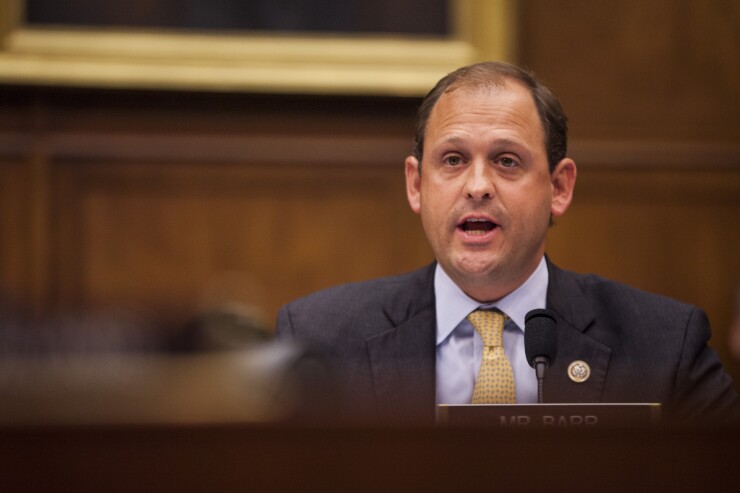WASHINGTON — Housing industry advocates are hopeful that the Department of Housing and Urban Development’s review of its manufactured housing regulations will bring rules more in line with current building trends.
The comment period on the HUD review, which was launched on Jan. 25, will end later this month. The review comes as Congress weighs legislation to ease lending restrictions on manufactured homes.
In announcing the request for input, HUD said it was seeking “to identify existing or planned manufactured housing regulatory actions to assess their actual and potential compliance costs and whether those costs are justified against the backdrop of the nation's shortage of affordable housing.”

"We want regulation but we need smart regulation," said Leslie Gooch, senior vice president of government affairs and chief lobbyist at the Manufactured Housing Institute.
The production of manufactured homes has been slowly increasing since the housing crash but this key source of affordable housing is still being hampered by restrictive zoning ordinances and tight lending standards.
A new study by the Urban Institute shows that manufactured homes comprised 16% to 25% of the single-family housing stock between 1977 and 1995. But it has averaged just 10% in recent years.
Manufactured homes are “less expensive and of a higher quality” than in the past. “Yet the number of manufactured units shipped remains low" due to restrictive zoning ordinances in cities and suburban areas,” according to the Jan. 29 Urban Institute report.
In addition, owners of manufactured homes generally do not enjoy much price appreciation and often face high financing costs.
The average cost of a manufactured home is $87,200. But the points and fees on loans of $75,000 or less generally push loans into the high-cost category and subject them to the Home Owners Equity Protection Act regulations. Most lenders shy away from small-balance loans, particularly chattel loans that are not secured by land, because of penalties associated with HOEPA violations.
The House recently passed a bill sponsored by Rep. Andy Barr, R-Ky., that would modify the definition of "high-cost" loans so that fewer small-balance MH loans meet such a classification.
“So-called consumer protections that deny hard-working, low- and moderate-income Americans the ability to own their own home at an affordable price, are harming consumers, not protecting them," Barr said in a press release in December.
Advocates for the housing and lending industries say a review of the HUD regulations on manufactured housing would also help. The manufactured housing industry wants HUD to be more innovative in terms of the amenities it allows on structures that are consistent with the regulatory guidelines. Those include carports and dormers — which are relatively common building additions — so these homes will be more attractive to localities.
Gooch said the MHI is very supportive of the HUD building code for manufactured housing, but a "wholesale review is needed to update the code."
"We are concerned about localities wanting our homes in their neighborhoods. But what HUD is doing is having the opposite impact," she said.
But affordable housing advocates worry that the review could lead to a weakening of HUD construction and installation requirements.
Doug Ryan, director of affordable homeownership at Prosperity Now, is concerned HUD might relax its enforcement of certain rules involving the final installation of manufactured homes on permanent sites. “That is problematic," he said. Ryan noted local land use and zoning officials would be “even more skeptical of manufactured housing because of this retreat by HUD."




